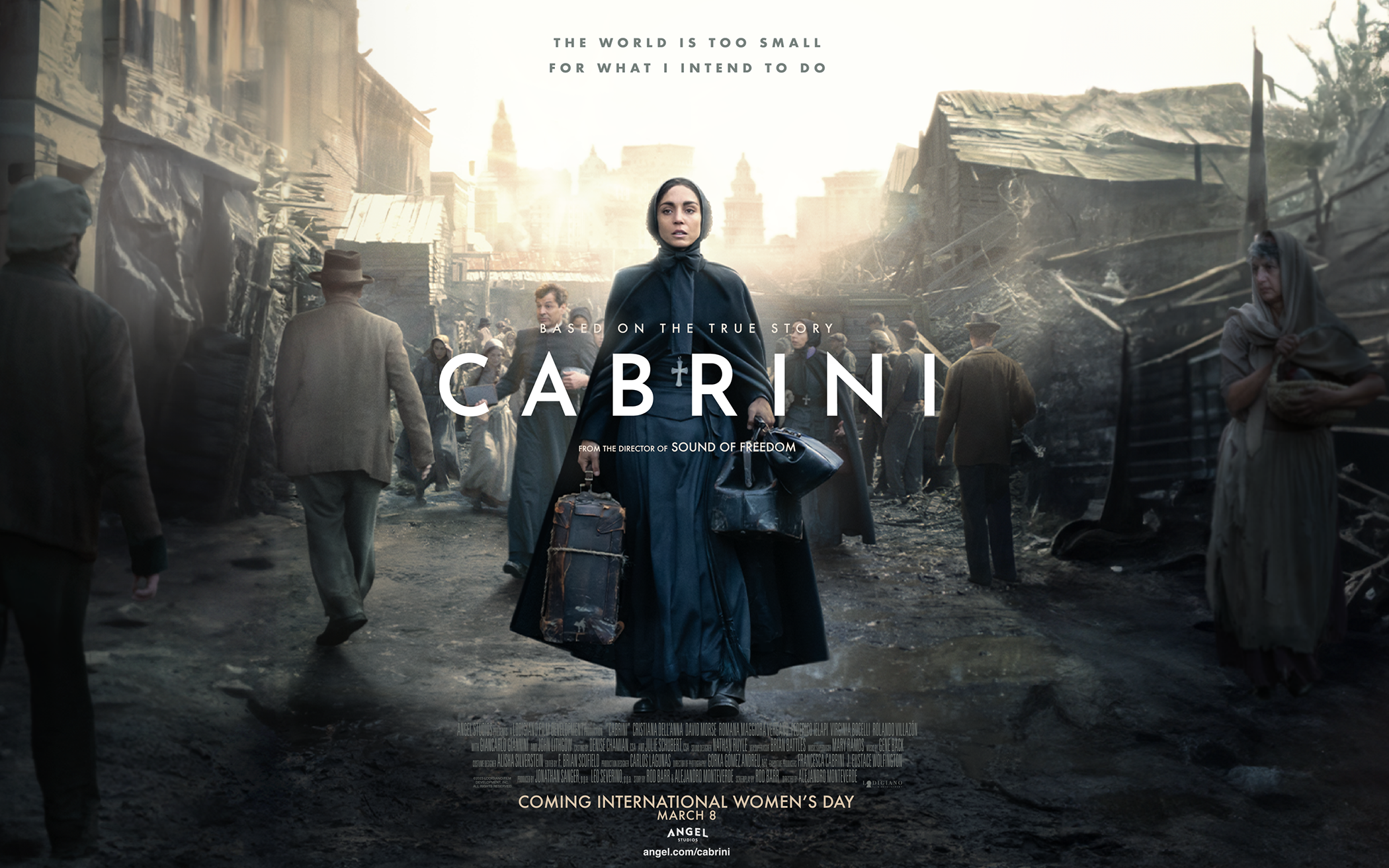When I heard about Cabrini, I thought it must be about Cabrini-Green, the notorious housing project on Chicago’s Near North Side, where I spent my freshman year of college volunteering. Everyone always referred to it as “Cabrini,” as if the Mr. Green the place was also named after simply did not rank.
After watching the movie, however, Mother Francesca Cabrini (Cristiana Dell’Anna) deserves to be exalted on this earth and have even more places named after her; it’s hard to imagine a more worthy heroine.
We meet Cabrini in her native Italy, where she is petitioning Pope Leo XIII (Giancarlo Gianinni) to spread her mission work of the order she started to China. Here she begins the gauntlet of being dismissed and stonewalled by powerful men at every turn. The Pope’s handlers treat her like an irritating flea, but Leo eventually meets with her, suggesting that the order first take on the travails of Italian immigrants in New York.
What she and her five fellow nuns discover when they come to America in 1889 is horrific. Italian immigrants are living in such filth and squalor that even the rats have it better. Children are living in sewers, and dead bodies are a dime a dozen. Such is her rallying cry to the Irish Archbishop of New York (David Morse), who is not unsympathetic, but he’s also not very brave. When he forbids her to ask Catholic church people for money to help, Cabrini has to get creative to fund her dreams of safe housing and medical care for the poorest of the poor. Everytime she was blockaded, by the clergy or even the haughty, xenophobic mayor of New York (John Lithgow, superb as always), this sickly, tiny woman found a brilliant way to circumvent the “rules,” turning to journalists, the established sons of Polish, Irish, and Jewish immigrants, and even one glamorous opera singer to get people to open their wallets—and hearts.
It was shocking to see the xenophobia flung like manure at the Italian immigrants, who were treated as subhuman “filth” by anyone not Italian. Even recent white immigrants such as the Irish and others seemed to have an awfully short memory, as their families, too, had been called “Micks” and “Polacks” and treated cruelly just a generation before Italians arrived on U.S. shores. Today, of course, Italians are respected members of mainstream society, but what about the new immigrants coming to North America, from the Middle East, Central
America, Africa, and Ukraine? They, too, deserve to be treated with the dignity of their status as image bearers of God. Mother Cabrini, the first canonized American saint and the patron saint of immigrants, would want us to take up her torch and do what we can to help welcome the stranger and the foreigner.
As a faith-based film, I found Cabrini to be artfully subtle and gloriously grace-full. Cabrini, the woman and the film, are not preachy, but believers will leave the theater inspired and uplifted by her courage and passion to serve the least of these. Next time I hear the name Cabrini, I will think first of a delicate nun with the heart of a warrior. (Angel Studios)
About the Author
Lorilee Craker, a native of Winnipeg, Man., lives in Grand Rapids, Mich. The author of 16 books, she is the Mixed Media editor of The Banner. Her latest book is called Eat Like a Heroine: Nourish and Flourish With Bookish Stars From Anne of Green Gables to Zora Neale Hurston.

